
Gifted/Talented Resources,Tools, and Research
Encouraging equitable representation of student populations in G/T programs throughout the state by providing tools and resources that inform and support families and educators.

Results updated as text is entered or upon selection
122 results found


Primary Students’ Behaviors Worthy of Additional Consideration

Types of Assessments

Achieving Equity within the District

Program Services

Evaluation of Gifted Program for CLED students

Curriculum and Instruction—Culturally Responsive Teaching

Professional Learning

Supporting and understanding your G/T child

Why are gifted programs needed?

Regional Education Service Centers

Gifted/talented acronyms
View and familiarize yourself with common gifted education terms and acronyms.

NAGC: What is Giftedness
Learn more about the nature and needs of gifted/talented students.

Overexcitability and the Gifted
Potential student overexcitabilities that may be demonstrated by some gifted/talented students.

NAGC: Myths about Gifted Students
Common myths about gifted/talented students and gifted/talented programs.

Profiles of the gifted/talented
Different profiles of gifted individuals that may help families better understand the nature and needs of gifted/talented individuals.

Identification Process
View Section 2 of the G/T State Plan for more information about identification of G/T students.

Texas State Plan for the Education of Gifted/Talented Students
The Texas State Plan for the Education of Gifted/Talented Students provides accountability standards and guidance to districts.

NAGC Position Statement
Understand more about identifying and serving culturally and linguistically diverse students.

¡Colorín Colorado!
Free resources for families of English Learners.

District Service Options
Districts have a variety of models to provide G/T services. It is important to note that Districts may offer one or more of these options. It is important to be familiar with your rights and know the expectations of the modes of delivery. Your child will be provided their services for acceleration and enrichment through these models. Take a look at the following district approved service options and questions that you are able to ask to advocate for your child.

Recursos para padres
Texas Association for Bilingual Education.

In Culture Parent
This site helps children and families become better global citizens.

TELPAS Resources
TELPAS Resources from the Texas Education Agency.

National Association for Gifted Children (NAGC)
The largest organization representing gifted learners.
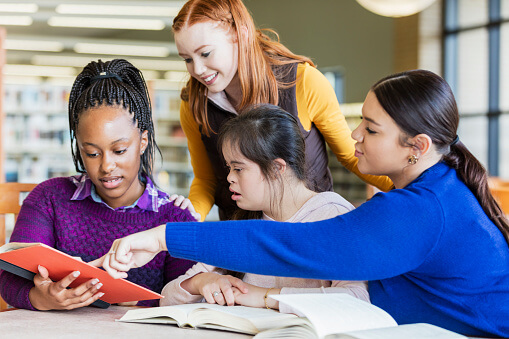
The Twice-Exceptional Dilemma
Guidebook including information about the characteristics and needs of twice-exceptional learners.

NAGC Position Statements & White Papers
Position paper on twice-exceptionality from the National Association for Gifted Children (NAGC).

Acronym Database
Database of commonly used acronyms in special population meetings from Texas Project First.

Parent’s Guide to the Admission, Review and Dismissal Process
Learn about the special education process and of your rights and responsibilities to support your child's service decisions.
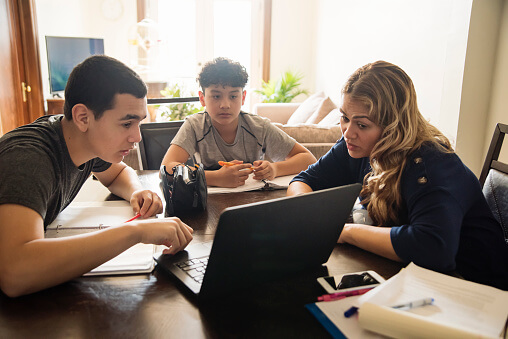
TXEL.org - Parent and Family Resources
Information and accessible resources for parents and families of English learners.
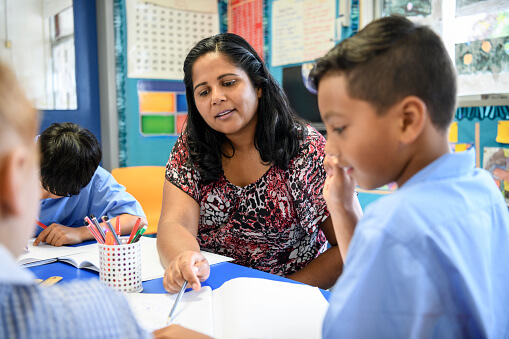
TXEL.org - Bilingual Education Brochure - English
Learn more about Bilingual Education programs, the process for identifying English learners (ELs) and approved service models.

TXEL.org - Parent/Guardian Rights - English
Your rights as a parent/guardian of an English learner regarding your child’s educational access and programming.

TXEL.org - Parent/Guardian Rights - Spanish
Rights that you have a as parent/guardian of an English learner regarding your child’s educational access and programming

TAGT - Parent Resources
Parent resources from the Texas Association for Gifted/Talented Students

Referring your child for G/T and what to look for in services
How do I refer a child for G/T services? If my student participates in G/T services, what should I expect? The following resources exist to better inform you as you navigate Gifted/Talented services in your child’s district. If you ever have any district-specific questions, consult your child’s publicly available school district’s board-approved policy.

NAGC - Parent/Guardian G/T Resources
NAGC works to provide parents and guardians with the tools you need to help your child succeed.
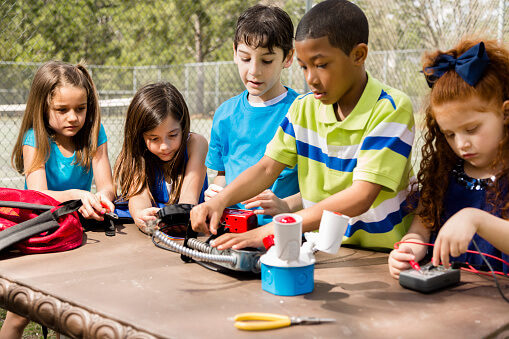
G/T Discover
Enrichment opportunities for your gifted and talented student both in and outside the classroom.

Talking with your child about giftedness - NAGC
Support in conversations with your child addressing their needs.

ABC's of Achieving Equity
From Achieving Equity in Gifted Programming, this document helps educators understand diverse learners’ identification and needs to increase equity in gifted education.

National Report Cards
Data for the state of Texas is available by scrolling to the bottom of the page. Click on “National Report Cards”, then select “Texas.”

Advancing Equity and Inclusion
Equity and Inclusion guide for municipalities.

How our education system undermines gender equity
Blog article regarding gender-based discrimination considerations from Brookings, a nonprofit public policy organization.

Brains of girls and boys are similar, producing equal math ability
Research from Carnegie Mellon University that examined the brain development of young boys and girls.

Assessment Providers
Texas Education Agency (TEA) list of various assessment providers. TEA does not endorse any assessment provider; this list is for convenience only.

Gifted English Language Learners
Texas is a wonderfully diverse state where more than 30 languages are spoken. Approximately 34% of Texas residents speak a language other than English. Of that group, 85% speak Spanish. A linguistically diverse gifted student is a child or youth who has the characteristics of gifted students with the potential for high achievement, whose primary language is one other than English, and whose English language skills are such that the student has difficulty performing ordinary classwork in English.

Primary Education Thinking Skills PETS™
Systematized enrichment and diagnostic thinking skills program

TEA Accommodation Resources
Texas Education Agency policies and acceptable accommodations that may be used during G/T testing.

Local Norms for Gifted and Talented Student Identification: Everything You Need to Know
Research article focusing on the use of local norms as one approach to equitable gifted identification.

Local Norms Spreadsheet
A downloadable spreadsheet including a step-by-step guide on the use of local norms.

Local Norms Spreadsheet Overview video
Video explaining how to use of Local Norms Spreadsheet

Effect of Local Norms on Racial and Ethnic Representation in Gifted Education
Paper discussing the use of local norms to increase the diversity of students identified for gifted services.

Maximizing Gifted Students’ Potential in the 21st Century
Article regarding cluster grouping to help G/T students achieve annual yearly progress (AYP).

The Cluster Grouping Handbook: A Schoolwide Model: How to Challenge Gifted Students and Improve Achievement for All
Book that presents a roadmap for implementing, sustaining, and evaluating schoolwide cluster grouping.

Twice Exceptional Learners (2E)
Students who are gifted may also have a special need or disability. The term “twice-exceptional,” also referred to as “2E,” is used to describe gifted children who have the characteristics of gifted students with the potential for high achievement and give evidence of one or more disabilities as defined by federal or state eligibility criteria.

NAGC grouping strategies
NAGC supports the growth and development of G/T children. Read about some of the various types of grouping strategies used with gifted learners.

15 Tips for Improving Identification of EL Students
National Center for Research on Gifted Education (NCRGE) developed research-based tips for successfully identifying EL students for gifted programs.

Increasing Equity in Gifted Education Programs and Services (NAGC)
Insight into the commitment from NAGC for increasing equity in gifted education programs and services.

Unconscious Bias in Schools
Resource for understanding the impact of unconscious bias in schools and their effect on students.

Where Do We Stand? Assessment One
Self assessment one on G/T identification procedures

Gifted/Talented Education District level Coding
PEIMS G/T District level program codes with program descriptions.

I’m Not Just Gifted: Social-Emotional Curriculum for Guiding Gifted Children
Book designed to help gifted children explore their giftedness, develop resiliency, manage intensities, and cultivate talents and passions.

When Gifted Kids Don’t Have All the Answers: How to Meet Their Social and Emotional Needs
Book offering practical suggestions for addressing the social and emotional needs of gifted students.

Some of My Best Friends are Books: Guiding Gifted Readers
Book containing a bibliography of books recommended for gifted students to learn social and emotional skills, while also fostering intellectual and creative development.

Hot Topics! Reading List on Being Gifted for Gifted Children
Website containing links to books for gifted children on the various aspects of being gifted.

Gifted cultural education model
Dr. Donna Ford has created a gifted cultural education model based on Bloom’s Taxonomy and James Banks’ levels of integrating multicultural content; contributions, additive; transformation, and social action. Dr. Ford’s matrix contains multiple pathways in which educators can develop curriculum that will affect students culturally and cognitively. The rows contain components of James Banks' Levels of Integration whereas the columns contain Bloom’s Taxonomy.

Social Emotional Needs of the Gifted (SENG) Articles
SENG resource library containing articles about the many facets of gifted learners.

Texas G/T Program Implementation Resource
Sample student assessment documents including a G/T furlough policy and referral form, G/T exist request form, and G/T exit committee report.

Program Evaluation Tools District-Level State Plan Assessment Tool
A tool created by the Texas Association for the Gifted and Talented (TAGT) to assist in program evaluation at the district level.

Gifted Program Evaluation in Progress
An example review of current G/T program policies and practices provided by the National Research Center on the Gifted and Talented.

Levels of Integration
James Banks' article on the levels of integrating multicultural content; contributions, additive; transformation, and social action.

Identifying and Supporting Gifted ELLs
A framework to locating gifted English learners by Edutopia author Louise Yaafouri.
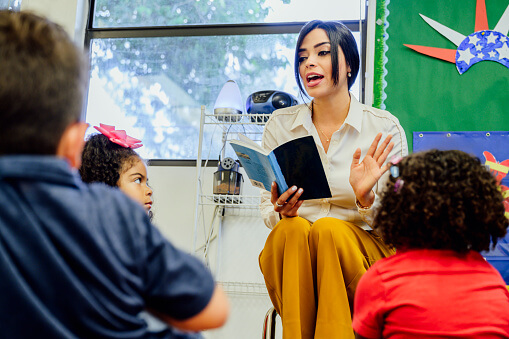
Promoting Academic Literacy by Building the Verbal Intelligence among Secondary English Language Learners.
A synthesis of research, challenges, and best practices in the education of secondary English Learners (ELs) from UC Davis.

Visual Imagery
Through guided visualization, students learn how to create mental pictures as they read.
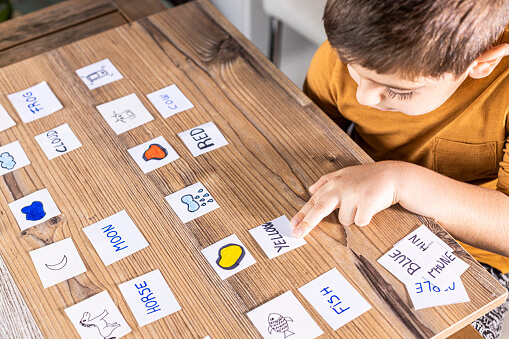
Brain Movies: When Readers Can Picture It, They Can Understand It
Guiding students to visualize as they read is an engaging and enjoyable way to boost comprehension and retention.

Doodling, Sketching, and ‘Mind Mapping’ as Learning Tools
Resources, ideas, and suggestions to help students get started with drawing to learn.

Teaching Culturally Diverse Gifted Students
Authors Ford and Milner provide an overview of multicultural gifted education, effective teaching strategies, and best practices to support a diverse population of students.

Cooperative Children’s Book Center University of Wisconsin
50 Multicultural Books Every Child Should Know

Gifted/Talented Teacher Toolkit - Teaching Research Skills to G/T Students
TEA resource designed to help teach research skills in addition to tips for differentiating instruction for Gifted/Talented (G/T) learners.

G/T Teacher Toolkit II - Resources for teacher of G/T, Advanced Placement and Pre-Advanced Placement classes
TEA resource designed to help educators evaluate curriculum and determine where to differentiate and add depth and complexity for gifted students.

We Are Teachers - 50 Tips, Tricks and Ideas for Teaching Gifted Students
Ideas to engage high-level thinkers in the classroom.

Working with Gifted English Language Learners
Book introducing educators to the complexities and challenges of providing appropriate educational experiences for gifted English Learners.

Prufrock Press Webinars
Prufrock Press offers free webinars that brings experts in the field of gifted education to educators.

Children’s Books With Strong Black Characters
Explore stories featuring strong Black characters that exude bravery, confidence, and curiosity.

Supporting English Learners in Texas
TEA web portal providing educators with resources that will positively impact efforts to ensure equity and the academic success of English Learners.

Texas English Language Proficiency Assessment System (TELPAS)
TEA designed the TELPAS to assess the progress that English learners make in learning the English language.

Supporting your G/T student in meetings

Texas Performance Standards Project
TPSP is comprised of performance standards, curricula, and assessments for enhancing G/T programs from kindergarten through high school.

Texas Lesson Study (TXLS)
Job-embedded professional development in which teachers work collaboratively to develop, teach, and revise research-based lessons.

Texas Association for the Gifted and Talented (TAGT) Conferences
Conferences and professional learning opportunities to provide educators tools to inspire gifted students and help fulfill their unique potential.

Professional Book Studies
Ideas for equity books studies where groups of G/T teachers read and have structured, yet meaningful conversations as they read the book.

Common G/T Assessments
G/T assessments that may be provided by your district. Your district may provide other measures that are not on this list.

Access to Service True/False
Download this True or False document to reflect on the equity of district G/T services.

AP as an Intervention for Middle School Hispanic Students
Advanced Placement has been seen as an effective intervention for Latino students.

General Characteristics of Twice Exceptional Learners
Common characteristics of 2E students.

Twice Exceptional Learners Strengths and Challenges
Students who are twice-exceptional may exhibit behaviors that may mask their needs for G/T services.

I'm Not Who You Think I am
Document that details what Twice Exceptional students may need based on behaviors that the student demonstrates.

Activities to do at home with your child

OCR Data Instructions
Instructions to assist in navigating the OCR data website in order to gather school or district G/T demographic data.

District or Campus GT Equity Representation
A template to help calculate the Representation Index by demographic.

Sample Issues and Barriers to Gifted Educational Involvement
Learn more about the perceptions from CLED families regarding gifted educational involvement, the referral process, and advocacy.

Continua of Cultural Tendencies and Beliefs
Table illustrating cultural tendencies and beliefs that may influence a student’s learning.

Giftedness in Cultural Context: A Tool for Increasing Black Student Referrals and Identification

Black Characteristics and Culture
Table consisting of Ford’s Characteristics of Black (African American) Students, Hurston’s Characteristics of Negros, and Boykin’s Afrocentric Cultural Styles.

Questions to ask during the referral process

Fort Bend Independent School District's Vistas Talent Pool Program
Fort Bend ISD developed the Vistas Program to identify and nurture advanced academic potential in students from historically underrepresented populations.

Where Do We Stand? Assessment Two
Self assessment two on G/T identification procedures

State Plan Guidance
TEA guidance on how to interpret the State Plan for the Education of G/T students.
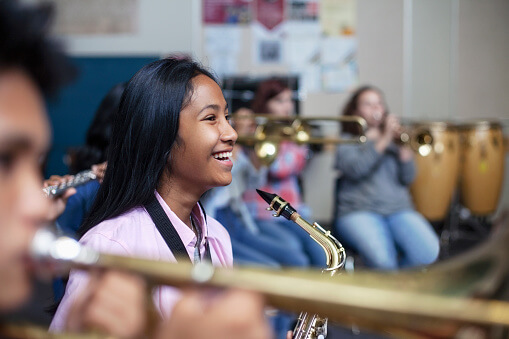
Celebrate Your Child

TXEL.org - Bilingual Education Brochure - Spanish
Learn more about Bilingual Education programs, the process for identifying English learners (ELs) and approved service models.

TXEL.org - Bilingual Education Brochure - Vietnamese
Learn more about Bilingual Education programs, the process for identifying English learners (ELs) and approved service models.
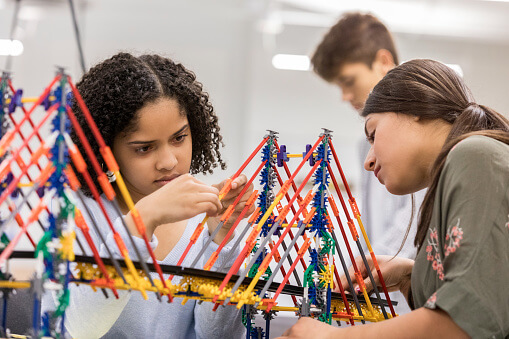
Texas Student Portfolio Profile

Parent and Educator Resource Guide to Section 504 in Public Elementary and Secondary Schools

Technical Assistance: 504

Diversity Toolbox

Is There a Gifted Gap? Gifted Education in High-Poverty Schools

Twice Exceptionality + Cultural Diversity = 3E

PLC/Book Study Guide for The Cluster Grouping Handbook

PEIMS Standard Reports

Statistics and demographics

Student Program and Special Populations Reports

Gifted Education Family Network
